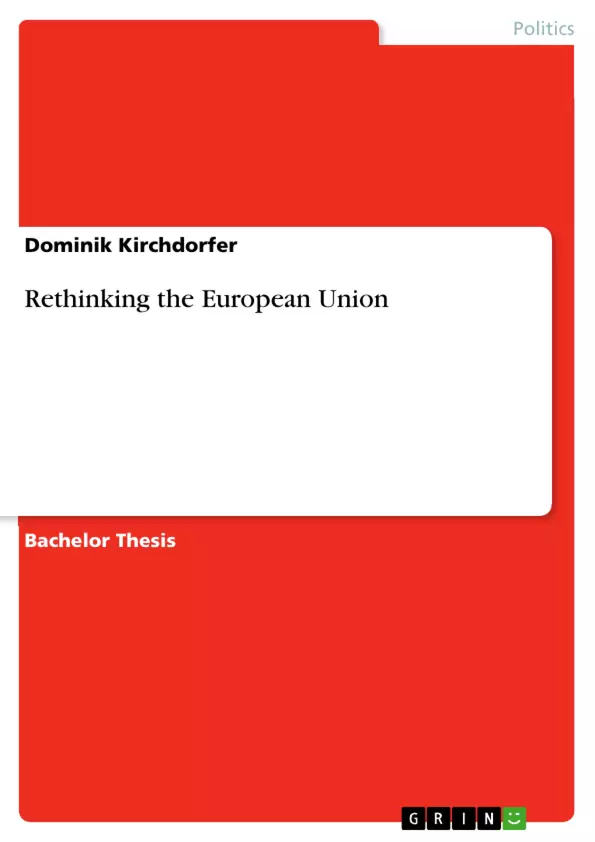The European Union is a constant topic for debate. In this thesis I take a closer look at the Union's many problems, possible solutions and how European integration should/will likely progress in the future. To accomplish this, I compare the EU's policy to other similar types, such as composite states (accessory union & union aeque principaliter). Furthermore I look at Switzerland, as an example for diversity in one state and the USA and similar models, as a reference point for federalism.
Inhaltsverzeichnis (Table of Contents)
- Preface and Introduction
- Issues of the EU
- Additional Problems
- Composite States versus Nation States
- Accessory Unions
- Aeque Principaliter
- Federalism
- Diversity
- The new model for the European Union
- Conclusion
Zielsetzung und Themenschwerpunkte (Objectives and Key Themes)
This bachelor thesis aims to explore the potential future development of the European Union. It builds upon the author's previous analysis of the EU's democratic properties and challenges, proposing a new model for the Union's structure and operation. The thesis examines various historical and contemporary examples of states and systems, seeking insights to address the EU's current shortcomings.- The European Union's Democratic Properties and Challenges
- Comparison of the EU to Other States and Systems
- Potential Models for the EU's Future Development
- The Role of Diversity and Federalism in European Integration
- The Importance of a Clear Separation Between National and Supranational Levels
Zusammenfassung der Kapitel (Chapter Summaries)
- Preface and Introduction: This chapter introduces the thesis's objective and its focus on the future development of the European Union. It highlights the EU's challenges, particularly in light of the global economic crisis and the rising Euroscepticism. The author argues for the need to consider alternative models for the EU's structure and operation.
- Issues of the EU: This chapter explores the challenges of multilevel democracy in the EU, emphasizing the tension between national and European levels of governance. It discusses the need for a stronger European political culture, as well as the balance between negative and positive integration. The chapter also highlights the importance of addressing the imbalance in power between the European institutions, particularly the European Parliament, the Court of Justice, and the Commission.
Schlüsselwörter (Keywords)
The central keywords and focus topics of this thesis include: European Union, multilevel democracy, political culture, integration, federalism, diversity, accessory unions, aeque principaliter, Switzerland, United States of America. The thesis explores these concepts to analyze the challenges and opportunities facing the European Union and to propose a new model for its future development.
Fin de l'extrait de 30 pages
- haut de page
- Citation du texte
- Dominik Kirchdorfer (Auteur), 2013, Rethinking the European Union, Munich, GRIN Verlag, https://www.grin.com/document/262538
Lire l'ebook



